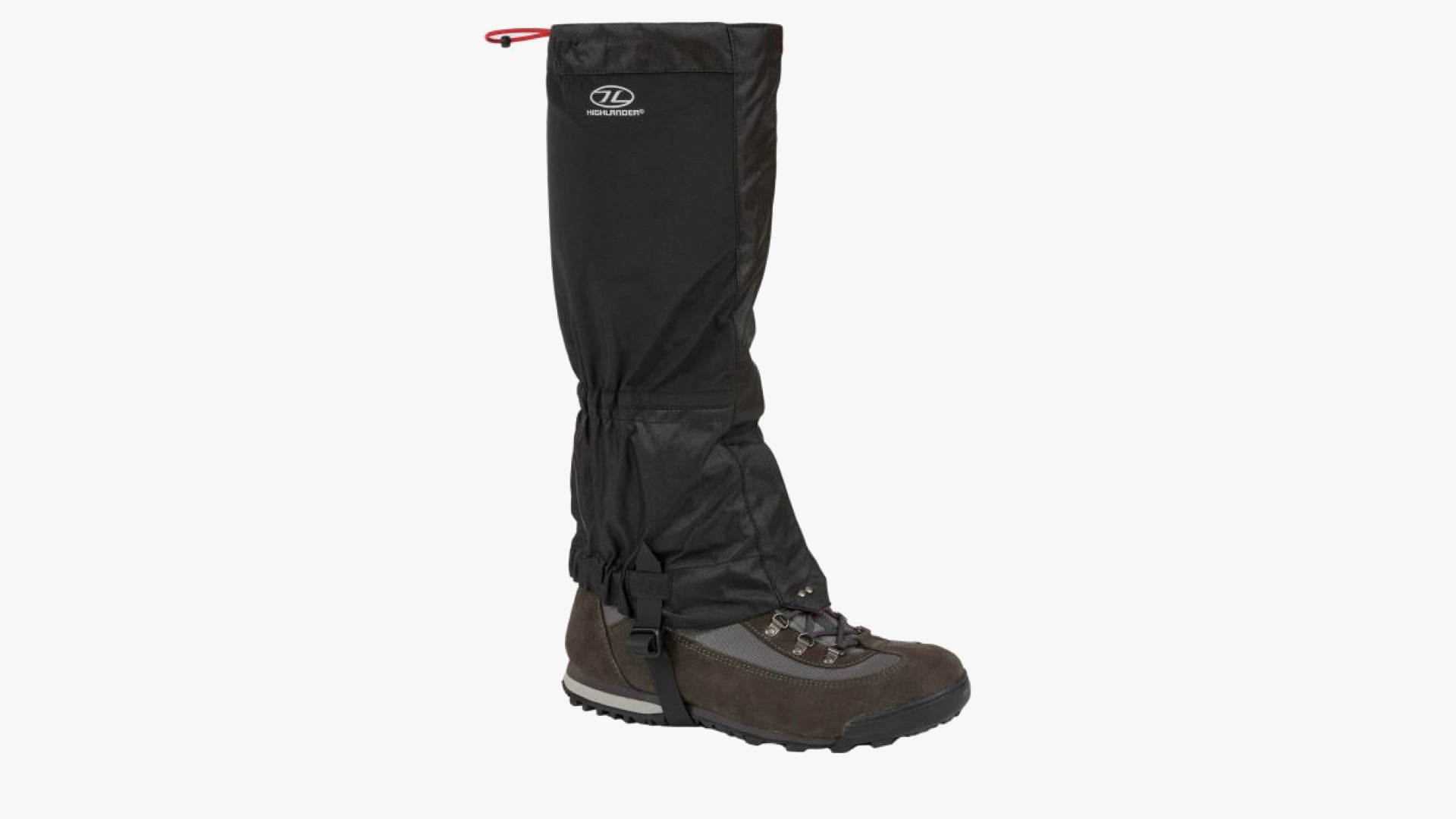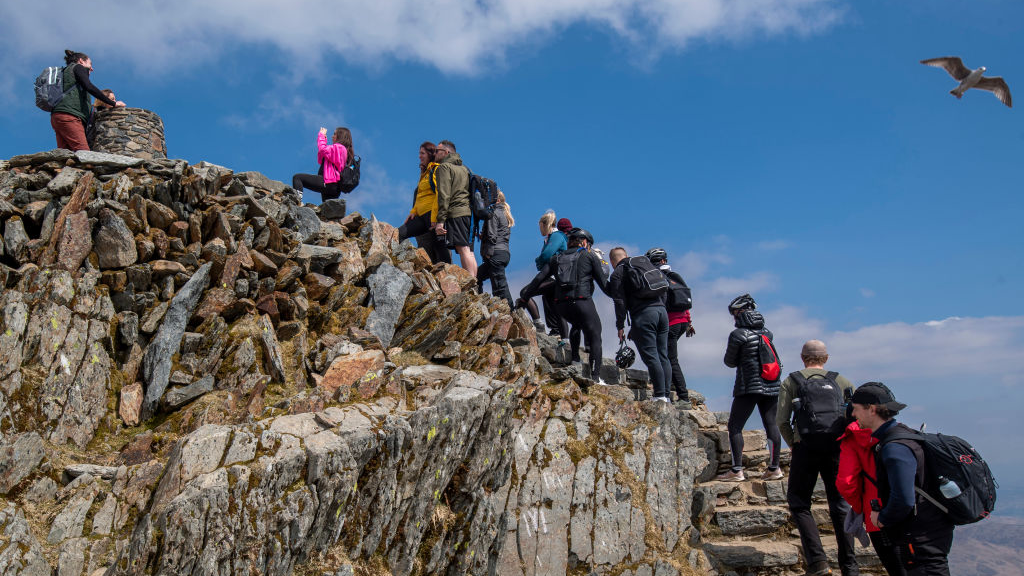Advnture Verdict
For walkers on a budget, these Highlander Cuillin gaiters are an excellent buy. The fabrics are as tough as those found in many of the premium gaiters on the market, while the practical design enables a highly adjustable and accommodating fit.
Pros
- +
Practical design
- +
Tough fabrics
- +
Instep strap is easily replaceable
- +
Good value
Cons
- -
Lower waterproof rating than top-spec gaiters
- -
Not especially breathable
- -
Instep strap susceptible to wear
You can trust Advnture
Highlander Cuillin gaiters: first impressions
Highlander Cuillin gaiters offer plenty of value, with a similar design and construction to other entry-level models in our best gaiters buying guide. The high cut extends to the top of the calves, promising full protection from mud and muck. They’re also reasonably lightweight, whilst employing nylon fabrics throughout, including a lower section made from robust 420-denier panels. This should withstand plenty of abuse along the trail.
A front Velcro closure makes them easy to get on, and they also feature an elasticated band at mid-calf to ensure a closer fit. The bottom of the gaiter has a double-riveted lace hook and a fully adjustable instep strap to ensure a snug seal over your best hiking boots. Top adjustment is via elasticated drawcord toggles, though it’s worth tucking the ends in to ensure they don’t get tangled or snagged.
• RRP: $33 (US) / £24 (UK)
• Weight (per pair): 240g / 8.4oz
• Length: Long
• Sizes: S–M / L–XL
• Colors: Black
Highlander Cuillin gaiters: on the trails
Performance was generally good. The Highlander Cuillin gaiters worked well over wet, boggy ground, saving our boots and best hiking pants from becoming waterlogged and mud-spattered. They make use of a PU-based waterproof-breathable membrane, which has a quoted lab performance of 5,000mm Hydrostatic Head and 5,000g / m² / 24hrs Moisture Vapour Transmission Rate (MVTR). Those are decent baseline figures for outdoor kit, though not comparable to leading membranes such as Gore-Tex. Our experience largely supported this, at least in terms of breathability.
The gaiters remained waterproof and didn’t leak but did occasionally get a bit sweaty. Given that they are half the cost of some rival models, that’s not surprising, and we’d still recommend them to hikers and hillwalkers on a budget.
These gaiters are also lightweight and not too bulky. Although the patterning isn’t quite as advanced as higher-priced models, meaning that the fit isn’t quite as neat, this is largely overcome by the elasticated section, which stops them from sagging too much around the calves. The tough nylon fabrics stand up well to everyday hiking and hillwalking. In fact, the only real shortcoming when it comes to build quality are some of the components.
The instep strap is made from ‘Hyperlon’, which as far as we can work out is a rubber-coated fabric. Still, it isn’t the thickest or most robust. On the other hand, it is easily removable, so if it does snap, you should be able to replace it. It is attached by plastic buckles, though, which in our experience don’t last as long as metal ones. These are still good gaiters, although you can’t help feeling that with a couple of little upgrades, they could be even better value.
An outdoors writer and editor, Matt Jones has been testing kit in the field for nearly a decade. Having worked for both the Ramblers and the Scouts, he knows one or two things about walking and camping, and loves all things adventure, particularly long-distance backpacking, wild camping and climbing mountains – especially in Wales. He’s based in Snowdonia and last year thru-hiked the Cambrian Way, which runs for 298 miles from Cardiff to Conwy, with a total ascent of 73,700 feet – that’s nearly 2½ times the height of Everest. Follow Matt on Instagram and Twitter.


